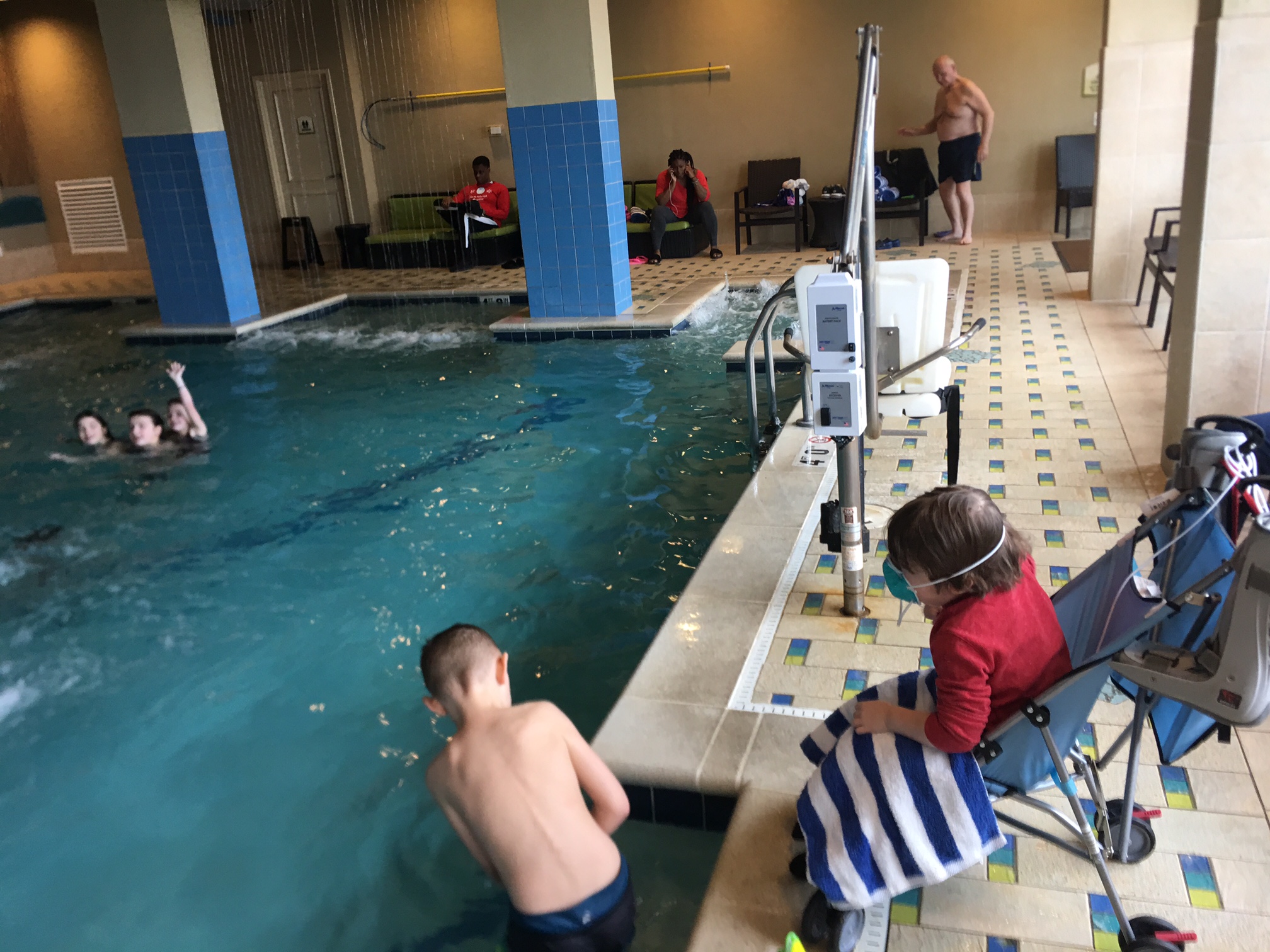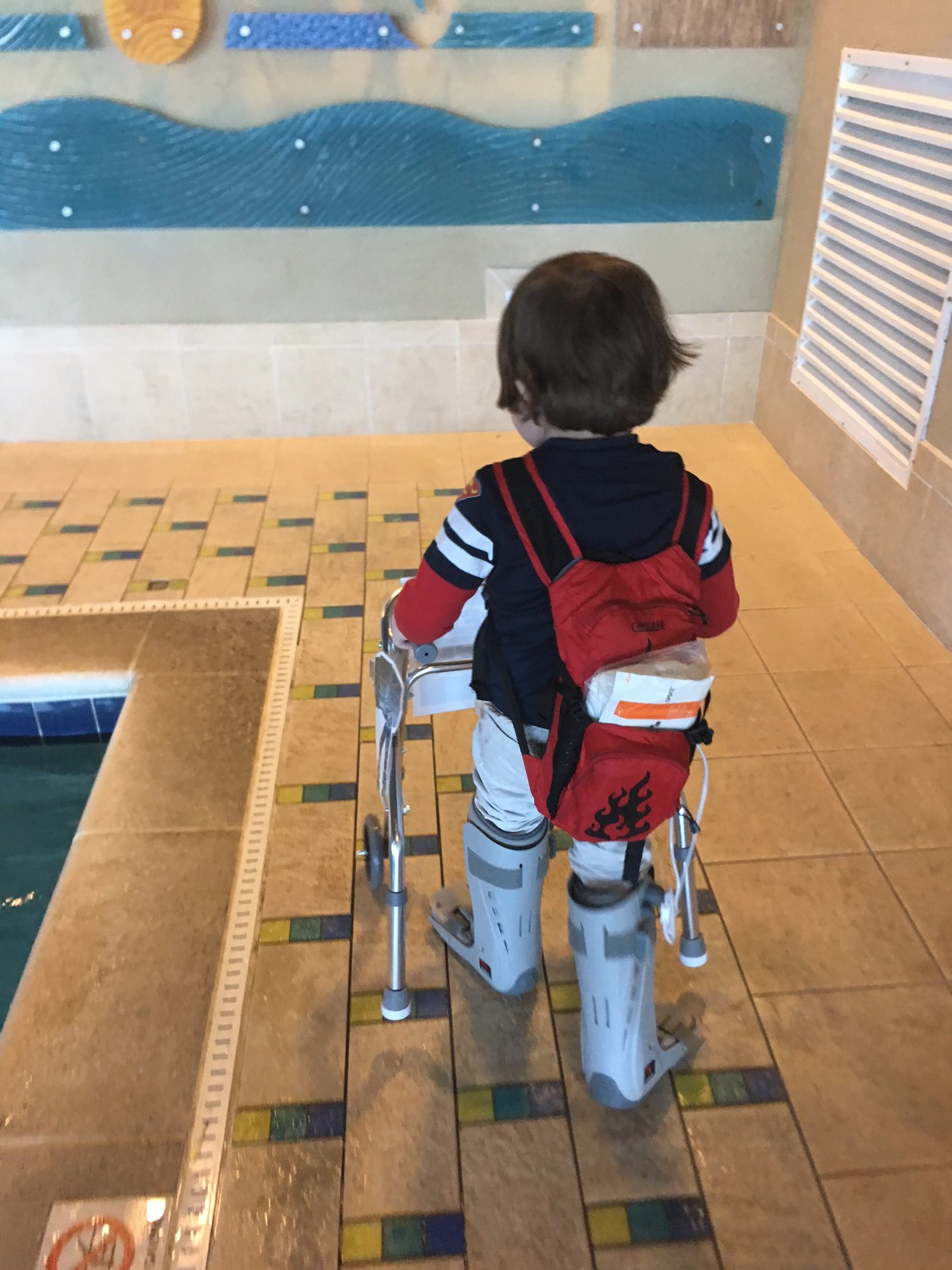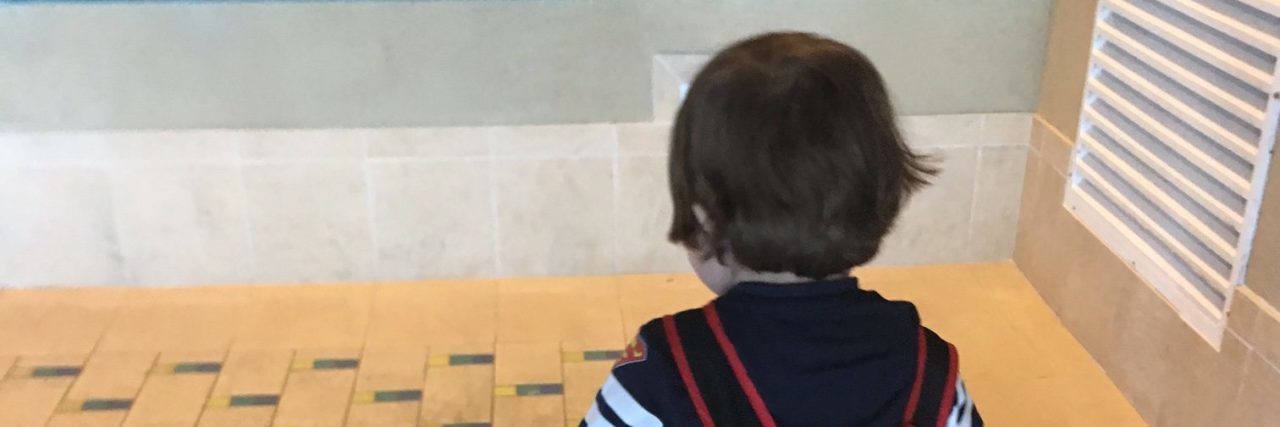“This is my little brother. He has an illness where he can’t eat and has to go into the hospital all the time because gets sick a lot.”
I listened from the other room as an introduction took place between my 7-year-old daughter and her new friend. My heart had become terribly used to a lot of jabs, but it wasn’t quite prepared for the pain that would come from the next few words spoken. On the floor in front of them, sat a sweet little 5-year-old boy who had become very adjusted to his medical isolation and apparently, without me knowing, had become extremely aware of his own medical condition.
This new friend looked curiously at my son, who without missing a beat, replied, “Don’t worry you can’t catch what I have.”
In that single moment, I was whisked back in time to a scene of me rushing a vomiting toddler out of a children’s museum. I could vividly see the gawking parents in the play area, their faces resembling that of the child who then stood in my living room. That day in the museum had been etched into my memory. As I made my way towards the exit I could feel the piercing eyes of concern from the parents around me. In my need to defend our presence in the children’s play area, I defensively began to repeat, “You can’t catch what he has. Please don’t worry, you can’t catch what he has!”
My instinct at that moment was to free the onlookers of their fear of catching a virus from another child. I have come a long way from that moment in the museum, yet suddenly I found myself transported back to the insecurity of those feelings.
My heart broke knowing my child felt the need to make that same distinction to others.
“You can’t catch what I have!”
No child should have to make that kind of clarification to someone. No child should have to feel the need to defend their existence that way.
His words broke me… but not him. To him, it was just a simple reassurance he sensed this new person needed.
When did he become so aware? I still see him as a young baby who has no knowledge of his differences. Yet, here he sits trying to comfort others with the news of his illness.
Daily he watches others consume food, something he has never been able to do.
Daily he watches others run and play outside, something his body just doesn’t have the stamina to do.
Frequently he watches others swim, something he can’t be apart of because of his central line and risk of infection.
Often he’s in a hospital, enduring procedures and fighting infections and fevers.
Yet, he feels the need to reassure others, bringing them comfort in coming to an understanding of his situation. These circumstances have just become his way of life, and he has an incredible ability to make the best of it. Never asking, “Why me?”
Yet, no one would blame him if he did.
Instead, he pretends to eat food when everyone else sits down to eat a meal; watches through a window shouting funny activities for others to act out while he giggles at their silliness; splashes his hands in a sink full of water, while others submerge in a bath; drives a motorboat and shoots water guns at the others while they play in a swimming pool; turns a hospital room into an imaginary world filled with pirates and dinosaurs, while others continue on with their lives on the outside of the hospital.

How can one little boy endure so much and still find joy in each day? He teaches us that we are so much more than our circumstances. He reminds us that all life has value and purpose, modeling how each of us must choose to find the good and allow it to cast a shadow over the struggles we endure.
Once again this little child has taught me a valuable life lesson. My instincts often lean towards sitting and licking my wounds, dwelling in the sadness of such moments. His, however… is to address the concerns of others by giving them comfort and reassurance.
“It’s the best day ever, Mama.”
Words that often follow days filled with pokes, procedures and tests. Words that my perspective would not have allowed me to utter, yet somehow he freely offers them as an attempt to comfort me.
“How’s your day been?”
I hear him frequently pose this question to those he encounters throughout his days, leaving me to wonder, when’s the last time I concerned myself with the goodness of someone else’s day?
Perhaps if we all focused on a concern for others and less on the darkness of our own days, we too could redirect our perspective, guiding our own attitudes towards hope and joy.
It sure seems to be working for this amazing little 5-year-old boy!
Once again I am humbled by his young wisdom and pure heart.


